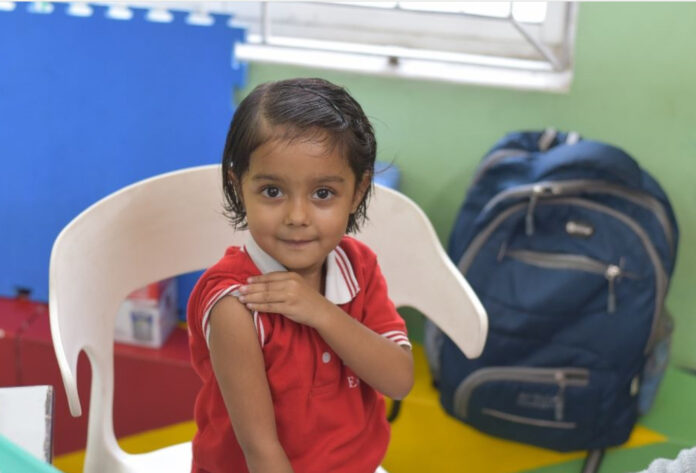The diseases which were once thought have gone after a shot of vaccine during childhood are threatening to come back again. Outbreaks of measles, diphtheria, meningitis are being reported from various parts of the world, Vaccine scientists and children doctors are now a worried lot.
The World Health Organisation (WHO) which conducts World Immunization Week during 24 to 30 April every year flagged the looming re-emergence of vaccine-preventable diseases because of several factors such as – funding cuts impacting vaccine research, misinformation (such as “Say No To Vaccine” movement during Covid19), disrupted immunisation because of wars, human migration, political upheavals, and so on.
World Immunization Week, celebrated in the last week of April, aims to promote the life-saving power of immunization to protect people of all ages against vaccine-preventable diseases. Vaccines are one of humanity’s greatest achievements.
According to WHO, since 1974, they have saved 154 million lives – that is more than 3 million lives a year or 6 people every minute for five decades. In the same period, vaccination has reduced infant deaths by 40%, and more children now live to see their first birthday and beyond than at any other time in human history. Measles vaccine alone accounts for 60% of those lives saved.
More lives are now being saved, among people of all ages, with more recent vaccines against malaria, HPV, cholera, dengue, meningitis, RSV, Ebola and Monkey Pox, reflecting an era of massive scientific advancements in vaccine development and delivery.
Every new child arriving in this world deserves the benefit of these vaccines. Yet, millions still miss the dose each year. To ensure that the immunization successes of the past 50 years are built on in the coming decades, this year’s WHO theme, “Immunization for All is Humanly Possible”, aims to continue the “Humanly Possible” campaign with a future forward look on the importance of ensuring more people, especially children, are vaccinated.
As 2025 is the mid-point in the Immunization Agenda 2030, World Immunization Week will look at not only what immunization does to improve lives today but what immunization can achieve in the coming decades as more children are approached with essential immunizations and new and newer vaccines are developed to cover a broader range of diseases and ages.
“Vaccines are proof that less disease, more life is possible when we put our minds to it. In 2025, let’s show the world that Immunization of All is Humanly Possible.,” says WHO
The global health body has launched a campaign with aim to :
- To raise awareness that Immunization for all is “Humanly Possible”.
- Demonstrate it is humanly possible to have less disease and more life, if people – and their communities – protect themselves and their loved ones from vaccine-preventable diseases through immunization.
- Encourage governments to turn vaccines into vaccinations through strong immunization programmes at local and national levels to deliver on the promise of immunization for all.
India has scaled its vaccines capabilities with an amazing speed and size. India is a major vaccine producer that has 36 major vaccine manufacturing facilities. These vaccines are used for the national and international market spanning 150 countries, which makes India a major vaccine supplier across the globe.
India, as a large vaccine producing country, is currently supplying several vaccines to the UN agencies (UNICEF, WHO and PAHO). National Regulatory Authority of India now meets the standards of the WHO NRA indicators (WHO Global benchmarking Tool) on functional regulatory system for vaccines.
Meeting WHO benchmarks will go a long way in re-affirming India’s role in global health, including the strength of its pharmaceutical sector and drug regulatory capacity. WHO had scaled up its technical support to the India’s national regulatory authority over the past several years. This success is a culmination of intensive effort by the Health Ministry to implement a roadmap to strengthen capacity for regulation of vaccines.



